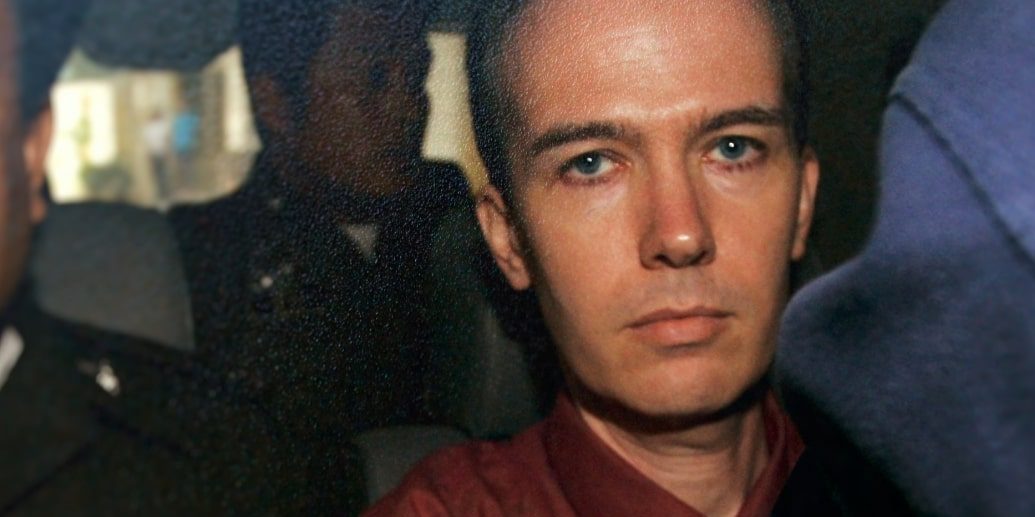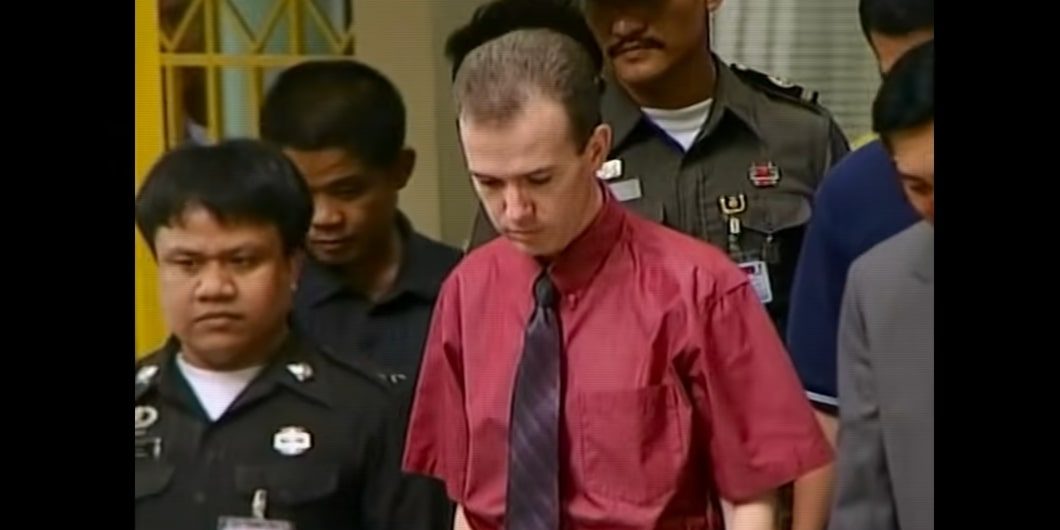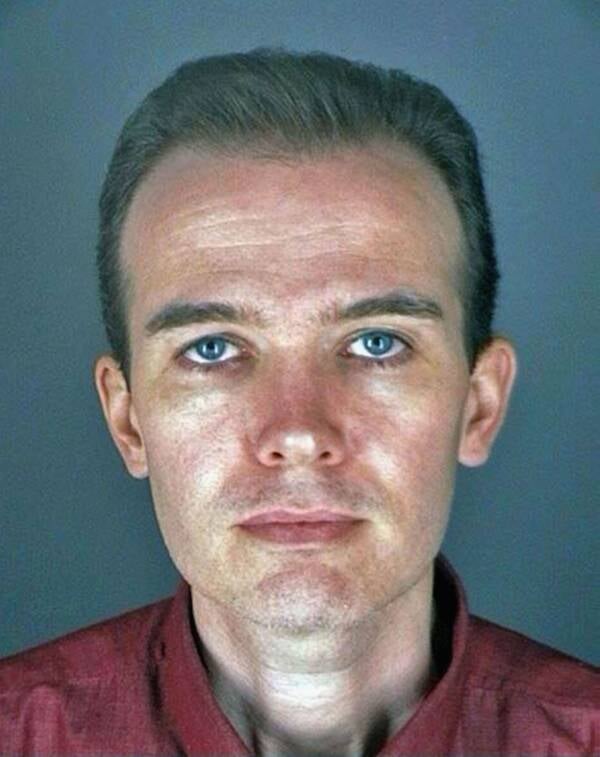John Mark Karr is a name that has sparked debates, controversies, and public intrigue for years. His story is not just about an ordinary individual but a complex narrative involving allegations, trials, and the media spotlight. As we dive deeper into his life, you'll uncover layers of mystery, legal battles, and the impact he had on society. Whether you're a curious reader or someone who wants to understand the broader implications of his case, this article is your go-to guide.
Before we delve into the nitty-gritty details, let's set the stage. John Mark Karr became a household name in 2006 when he confessed to being involved in one of America's most heart-wrenching child abduction cases. The media frenzy that followed brought his name to the forefront, but the story didn't end there. It only deepened as more facts emerged, painting a picture far more complicated than initially imagined.
So why does John Mark Karr's story matter today? Well, it's not just about the case itself but the questions it raises about justice, media influence, and the human psyche. This article will take you through his biography, the allegations, the legal proceedings, and the aftermath. We'll also explore the impact of his story on society and the lessons learned from it all.
Read also:Unveiling The Journey Of Myah Mcgillivray A Rising Star
Biography: Who Is John Mark Karr?
Let's start with the basics. John Mark Karr is not just another name in the history books; he's a figure whose life took a dramatic turn after a shocking confession. Born on November 1, 1957, in Houston, Texas, Karr grew up in a modest family. His early life seemed unremarkable, but as we'll see, things took a dark turn later in life.
Below is a quick rundown of his personal information:
| Full Name | John Mark Karr |
|---|---|
| Date of Birth | November 1, 1957 |
| Place of Birth | Houston, Texas |
| Occupation | Teacher, Writer |
| Notable Incident | Confession to JonBenét Ramsey's murder |
John Mark Karr's journey from being a school teacher to becoming a central figure in a high-profile case is nothing short of bizarre. His life was forever changed when he stepped into the spotlight, and the world watched as the story unfolded.
Early Life and Education
John Mark Karr's early years were relatively normal, at least on the surface. Growing up in Texas, he attended local schools and eventually pursued higher education. He earned a degree in education, which led him to a career as a teacher. Who would have thought that a man with such a seemingly ordinary background would become embroiled in one of the most controversial cases in modern history?
His educational background and career choice were typical for someone of his generation. However, it was his personal life that would later raise eyebrows. Karr's journey through life was dotted with incidents that hinted at a deeper complexity, something that would eventually come to light in the most unexpected way.
Key Moments in His Early Life
- Born and raised in Houston, Texas, Karr had a stable upbringing.
- Graduated with a degree in education, setting the stage for a career in teaching.
- Worked as a teacher in various schools, gaining a reputation for being dedicated to his craft.
These early years shaped the man he would become, but they also laid the groundwork for the controversies that would follow.
Read also:Big Booty Bailey Videos A Comprehensive Guide To Her Rise Impact And Popularity
The Controversial Confession
Now, let's get to the heart of the matter. In 2006, John Mark Karr made headlines when he confessed to being involved in the murder of six-year-old beauty queen JonBenét Ramsey. This confession sent shockwaves through the nation and reignited interest in a case that had been closed for years.
Karr's confession was not just a random claim; it was accompanied by specific details that seemed to corroborate his involvement. However, as the investigation unfolded, cracks began to appear in his story. The media circus that followed only added to the confusion and public fascination with the case.
Why Did He Confess?
Many have speculated about the reasons behind Karr's confession. Was it genuine remorse, a cry for attention, or something else entirely? The truth remains elusive, but one thing is clear: his confession had far-reaching consequences.
- Some believe he sought fame and notoriety through his confession.
- Others argue that he may have been delusional, mistaking fantasy for reality.
- Regardless of the motive, his confession reignited a case that many thought was long resolved.
The legal and psychological implications of his confession continue to be debated to this day.
Legal Proceedings and Fallout
Once John Mark Karr's confession hit the media, the legal system swung into action. Authorities in Colorado, where JonBenét Ramsey was found dead in 1996, were quick to investigate his claims. However, as the evidence was scrutinized, it became clear that Karr's story didn't quite add up.
Despite his detailed confession, DNA evidence and other forensic findings did not match Karr's claims. The case against him began to unravel, and eventually, he was released without charges. The fallout from this legal drama was significant, affecting not only Karr but also the public's perception of justice and media coverage.
Key Legal Points
- Karr was extradited from Thailand to the United States for questioning.
- Forensic evidence failed to link him to the crime scene.
- Public opinion was divided, with some believing in his guilt and others seeing him as a victim of media hype.
The legal proceedings surrounding John Mark Karr serve as a reminder of the complexities involved in high-profile cases and the importance of evidence-based justice.
Impact on Society
John Mark Karr's case didn't just affect him personally; it had a broader impact on society. The media frenzy surrounding his confession raised questions about the role of journalism in high-profile cases. Was the media too quick to jump on the story without sufficient evidence? How did this affect the legal process and public perception?
Moreover, the case highlighted the psychological aspects of confession and the potential for false confessions. Experts weighed in on the phenomenon of individuals confessing to crimes they didn't commit, often driven by mental health issues or a desire for attention.
Lessons Learned
- The importance of relying on forensic evidence rather than just confessions.
- The need for responsible journalism in covering sensitive cases.
- Awareness of mental health issues and their role in criminal behavior.
These lessons continue to influence how we approach similar cases today.
Public Reaction and Media Coverage
When John Mark Karr's confession hit the airwaves, the public reaction was swift and intense. Social media platforms were flooded with opinions, theories, and conspiracy claims. The 24/7 news cycle kept the story alive, with updates and analysis dominating headlines for weeks.
The media played a pivotal role in shaping public perception. Some outlets were cautious, waiting for concrete evidence before drawing conclusions, while others jumped on the bandwagon, fueling speculation and misinformation.
How the Media Influenced the Case
- Extensive media coverage brought the case back into the public eye after years of dormancy.
- Public opinion was heavily influenced by media narratives, often without access to all the facts.
- The case highlighted the dangers of media trials, where public sentiment can overshadow legal proceedings.
The interplay between media and justice remains a critical issue in modern society, and Karr's case serves as a cautionary tale.
Psychological Insights
Understanding John Mark Karr's motivations requires delving into the psychological aspects of confession and criminal behavior. Experts in forensic psychology have analyzed cases like his to shed light on why individuals might confess to crimes they didn't commit.
Factors such as mental health issues, personality disorders, and a desire for attention can all contribute to false confessions. In Karr's case, these elements were scrutinized to determine the authenticity of his claims.
Key Psychological Findings
- Some individuals may confess to crimes as a way to gain notoriety or attention.
- Mental health issues can cloud judgment and lead to false confessions.
- Understanding the psychology of confession is crucial in preventing wrongful convictions.
These insights help us navigate the complexities of cases like Karr's and ensure that justice is served based on facts, not speculation.
Aftermath and Legacy
After the dust settled on John Mark Karr's case, the world was left with more questions than answers. His confession, though dramatic, ultimately did not lead to a conviction. But the impact of his story lingers, influencing how we view high-profile cases and the role of media in justice.
Karr's legacy is a mixed bag. On one hand, his case highlighted the importance of forensic evidence and responsible journalism. On the other hand, it raised questions about the mental health of those who confess to crimes they didn't commit.
What Happened Next?
- Karr returned to a relatively private life after his release, avoiding the spotlight.
- Public interest in the JonBenét Ramsey case remains high, with new theories and developments occasionally emerging.
- The case continues to be a subject of study in forensic psychology and criminal justice.
John Mark Karr's story may not have all the answers, but it certainly provides plenty of food for thought.
Conclusion: Reflections on John Mark Karr
In conclusion, John Mark Karr's story is a fascinating yet troubling tale of confession, media hype, and the complexities of justice. His confession reignited interest in the JonBenét Ramsey case, but it also raised important questions about the role of evidence, media, and psychology in high-profile cases.
As we reflect on his story, it's essential to remember the lessons learned. Forensic evidence remains a cornerstone of justice, and responsible journalism is crucial in shaping public perception. The psychological aspects of confession must also be considered to prevent wrongful convictions.
If you found this article insightful, feel free to share your thoughts in the comments below. Your feedback helps us improve and provide more valuable content. And don't forget to explore other articles on our site for more engaging reads!
Table of Contents


